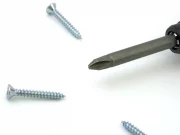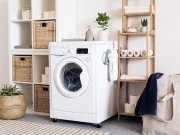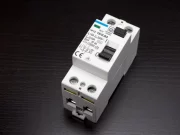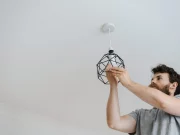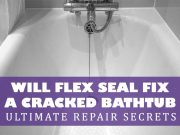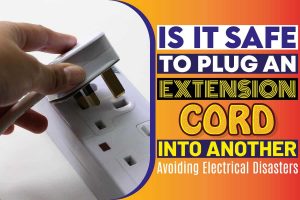
The current world runs entirely on electricity, and we would be set back hundreds of years without it. Electricity can only serve you if you have a conductor to carry it to where you want to use it.
An extension cord is the most sensible way to move the electrical current from an outlet to another point.
This cord might not be long enough at times, so you want to plug another extension into the first one. Is this safe? Let us get into it and understand this;
Is It Safe To Plug An Extension Cord Into Another?
It is not safe to plug extension cords into each other. When an electrical current passes through a power cable, there is a resistance produced by the cord.
The resistance causes heat to be generated in the extension cord, and plugging another extension cord will double the resistance. This will increase the likelihood of overheating or a fire sparking in your connections which could fry your equipment and even burn your house down.
Extension Cord Safety Guidelines
You always have to be careful whenever you deal with electricity, be it appliances or extension cords. About 24,000 fires are caused by electricity in the US each year which makes it a significant concern.
It would help if you were more careful since electrical fires are challenging to put out, spreading faster and further away than other fires.
Here are some safety tips you should use to keep you and your loved ones safe from electricity;
- Buy extension cords with three prongs at the head. It earths the sockets to get rid of any charges before the rest of the prongs go in, which significantly reduces the chances of you getting an electric shock or starting a fire.
- Do not overload the cord. Each extension cord has an amp rating indicated, or you can use a gauge to figure out what it is.
A lower gauge reading indicates a higher capacity. Overloading an extension cord will cause increased resistance; sparking, and it could lead to a fire.
- Don’t plug sensitive appliances into regular extension cords. Always use surge protectors or get an extension with surge protection pre-installed to protect your devices from fluctuating power levels.
- Get an extension cord that is designed specifically for the task you want it for. Improvisation with electrical equipment often leads to accidents and fires that cause millions in property damage.
- Please select the correct gauge extension cord for your appliance to avoid wearing down the appliance by denying it enough voltage.
- Don’t use the cord to yank the plug out of the power outlet. Instead, go to the outlet, hold the plug’s head, and pull it out the same way you would have put it in. Yanking it out could damage the power outlet or the prongs on the cord.
- Properly wrap the cord after using it. If you fold it incorrectly, it will get wrinkled up, and there might be some internal damage that will make it unsafe to use. Make sure you wrap it in a big loose pattern to prevent twisting the cord.
Understanding Extension Cord Gauges
The extension cords gauge is an essential factor when considering a cord. If you get the wrong cord, you will have an underpowered appliance since the cable doesn’t carry enough current.
The gauge refers to an amp rating a cord is capable of sustaining. The lower the gauge number, the higher the extension cord’s amp rating. Here are the standard electrical gauges you can choose from;
1. 16- Gauge
This is the highest gauge, and it is meant for light duty applications for home use. You can use such a cord with hedge trimmers, fans, holiday lights, or any other services that don’t require a significant amount of power.
2. 14- Gauge
This is a general gauge for most medium-powered tools. Most home-use power tools fall under this category, including lawnmowers, vacuum cleaners, power drills, and household appliances.
3. 12- Gauge
This is the lowest gauge extension cord, and it was meant for heavy-duty tools that use an extremely high amount of electricity. This would be the best for industrial use since it would be overkill in a home setting.
For those with tools like air compressors, shop vacuum cleaners, saws, and power saws, this is the extension cord for you.
The cable is even bigger and heavier than the others to make it more efficient by reducing resistance.
Factors To Consider When Choosing An Extension Cord
The right choice of an extension cord will save you the stress of connecting the cord to another. It will also make it safer for you to use after the installation; thus, you need to consider the following factors before buying an extension cord carefully;
- Consider the environment you plan to use the cord in. If you want to use it outdoors with rain and cold and extreme heat, you need a different cable than you would if you are an indoor user.
- The maximum amperage of the cord is also crucial since it will dictate the appliances you can use at the other end of the cord. Understand all the appliance needs before you go out to buy an extension cord to be sure it will work.
- The range and physical size also weigh on your decision. If you get an extension cord that is not long enough, you will have to extend it further, which is unsafe. It’s better to have too much cable than to have too little.
- Temperature ratings and prongs. Extension cords generate some heat due to resistance between the cables and the electric current passing inside them. You should consider the intended use for the cord and make a purchase that matches it.
A suitable extension cord should have three prongs. The longer prong earths the socket to get rid of the static or residual current before the others go in. This protects your equipment and you from an electric shock due to power surges.
Conclusion
It is not safe to connect an extension cord into another. It is a common practice, but it doesn’t mean it’s correct or safe just because most people do it. Fires caused by electricity are devastating, and they spread faster than usual; thus, you have to be extra careful.
You should look into your needs carefully before purchasing a cord to make sure it works perfectly.
Putting yourself in a position that needs you to improvise is what often leads to accidents and fires. Be smart about your connections and keep everyone, including yourself, safe.





